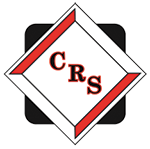The heart is an essential organ that pumps blood throughout your body. It consists of four chambers and valves that make sure blood flows in the proper direction. Diseases or damage to these valves can impair their functionality, which can result in a number of heart conditions, such as heart failure and stroke. Fortunately, advances in medical technology have made it possible to treat heart valve disease with minimally invasive procedures like transcatheter valve therapies, which provide many patients with a less invasive option than open heart surgery. However, ensuring the continued safety and effectiveness of these procedures requires ongoing monitoring and evaluation. This is where the STS ACC TVT Registry comes in.

What is the STS ACC TVT Registry?
The Society of Thoracic Surgeons and American College of Cardiology Transcatheter Valve Therapy Registry, or STS ACC TVT Registry, is a national database that gathers information on patients undergoing transcatheter mitral valve repair (TMVR) and transcatheter aortic valve replacement (TAVR).
Why is the STS ACC TVT Registry Important?
The STS ACC TVT Registry plays a crucial role in improving heart valve care by:
• Monitoring Safety and Outcomes:
The registry collects detailed information on a wide range of factors, including:
Patient demographics: Age, gender, medical history, and other relevant health conditions.
Procedural details: Type of valve used, access site, procedural complications, and length of hospital stay.
In-hospital outcomes: Mortality rates, stroke rates, bleeding events, and need for re-intervention.
Long-term outcomes: Survival rates, valve function, and need for additional procedures.
This comprehensive data allows researchers to:
Identify trends in the safety and effectiveness of TAVR and TMVR procedures over time.
Compare outcomes for different types of valves and procedural techniques.
Assess the influence of patient attributes on results to facilitate the process of choosing patients.
Track long-term complications associated with these procedures.
The STS ACC TVT Registry helps ensure that these procedures continue to be safe and effective for patients by closely monitoring safety and outcomes.
• Quality Improvement:
The registry offers tools and resources to assist healthcare providers in raising the standard of care for patients receiving transcatheter valve therapies, in addition to gathering data. This includes:
Risk calculators: These tools help healthcare providers predict a patient’s risk of complications before undergoing a TAVR or TMVR procedure. Treatment plans can be improved and patients can be chosen with this information in mind.
Performance reports: Participating hospitals receive reports that compare their outcomes with national benchmarks. This allows them to identify areas for improvement in their transcatheter valve programs.
Best practices guidance: The registry provides recommendations on best practices for patient selection, procedural techniques, and post-operative care.
• Standardization and Benchmarking:
Standardized data collection and reporting are crucial for comparing outcomes across different hospitals and healthcare systems. The STS ACC TVT Registry establishes a standard set of definitions and data points for reporting on TAVR and TMVR procedures. This allows for:
Benchmarking: Hospitals can compare their performance with national averages and identify areas where they excel or need improvement.
Identification of best practices: By analyzing data from high-performing institutions, other hospitals can learn and implement best practices in their programs.
Collaboration and quality improvement initiatives: Sharing standardized data facilitates collaboration between institutions and allows for the development of national quality improvement initiatives for transcatheter valve therapies.
• Research and Innovation:
The wealth of data collected by the STS ACC TVT Registry provides valuable resources for researchers studying heart valve disease and transcatheter valve therapies. This data can be used to:
Evaluate new valve technologies: Researchers can analyze registry data to assess the safety and effectiveness of new transcatheter valves as they become available.
Study new treatment approaches: The registry can be used to evaluate the outcomes of different procedural techniques and identify areas for innovation in transcatheter valve therapies.
Investigate long-term patient outcomes: By tracking patients over time, researchers can gain insights into the long-term durability of transcatheter valves and identify potential late complications.
Benefits of Participating in the STS ACC TVT Registry
Hospitals and healthcare systems participating in the STS ACC TVT Registry benefit from a range of advantages:
• Quality Improvement Tools:
Participating hospitals receive access to a suite of tools and reports specifically designed to help them identify areas for improvement in their transcatheter valve programs. These tools may include:
Interactive dashboards: These dashboards provide real-time data on a hospital’s performance compared to national benchmarks. This allows for continuous monitoring of critical metrics and the identification of areas needing immediate attention.
Drill-down capabilities: Reports allow hospitals to delve deeper into specific patient cohorts or procedural details. This aids in their ability to pinpoint improvement initiatives and comprehend the underlying causes of outcome variations.
Comparative benchmarking reports: These reports compare a hospital’s performance with similar institutions based on factors like patient demographics and case complexity. This allows for targeted learning and adoption of best practices from high-performing institutions.
• Benchmarking Data:
Participation in the registry allows hospitals to compare their outcomes with national benchmarks for TAVR and TMVR procedures. This provides valuable insights into their relative strengths and weaknesses compared to their peers. Benchmarking data can be used for:
Strategic planning: By identifying areas where they fall short of national benchmarks, hospitals can set specific goals for improvement and allocate resources strategically.
Performance improvement initiatives: Hospitals can use benchmarking data to develop targeted initiatives aimed at improving patient selection criteria, procedural techniques, and post-operative care protocols.
Demonstrating the quality of care: Hospitals can leverage their performance data relative to national benchmarks to attract patients seeking high-quality transcatheter valve therapies.
• Research Opportunities:
Participating hospitals have the opportunity to contribute data to ongoing research studies conducted by the STS ACC TVT Registry. This research helps to advance the field of transcatheter valve therapies and ultimately improves patient care. Additionally, participating hospitals may have the opportunity to initiate their research studies using registry data, allowing them to investigate specific questions relevant to their patient population or practice patterns.
Public Reporting: Contributing data to the STS ACC TVT Registry helps create public reports on the safety and effectiveness of transcatheter valve therapies. This information is valuable for:
Patients: By making clear the advantages and disadvantages of TAVR and TMVR procedures, public reports give patients and their families the information they need to make educated decisions about their course of treatment.
Physicians: Physicians can stay informed about the most recent developments in transcatheter valve therapies and use this information to guide their recommendations for patient care by having access to public reports.
Policymakers: Public reports can inform policymakers on the overall effectiveness and cost-effectiveness of transcatheter valve therapies, helping to guide healthcare policy decisions.
Conclusion
The STS ACC TVT Registry plays a critical role in ensuring the continued safety, effectiveness, and quality of care for patients undergoing transcatheter valve therapies.
The STS ACC TVT Registry is a valuable resource for all stakeholders involved in transcatheter valve therapies. It ultimately contributes to better patient care for those with heart valve disease.


